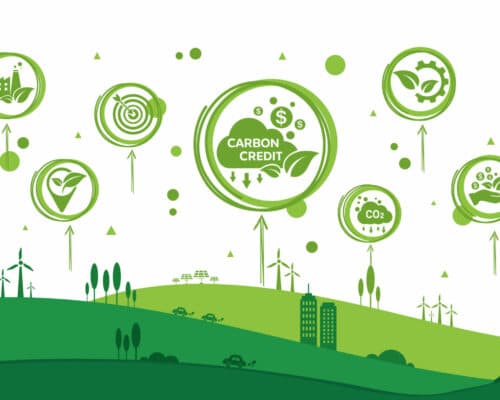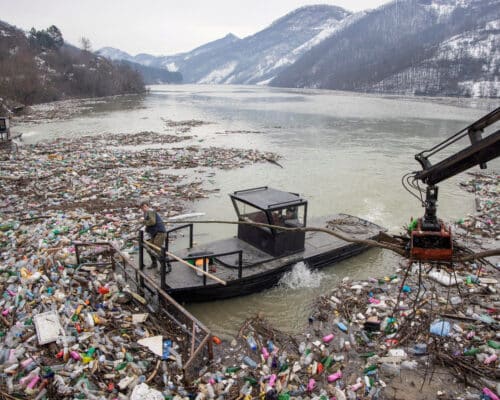Articles
Samsung Renewable Energy and the Squid Game Protest at COP26
CSOs call upon Samsung to power all of its worksites on 100% renewable energy during a Squid Game-themed protest at COP26. This is in response to the global semiconductor manufacturer's failure to show sufficient progress in reducing emissions, despite claiming to be an eco-friendly leader in sustainability and smart technology.
A Close Look at China’s Five Year Plan for Coal (2021-2025)
Coal power is the anchor energy in the country, supplying around 70% of the electricity, also contributing roughly 43% of the country’s CO2 emissions. China has made promises in recent years to limit its coal power growth. But the world is still nervously guessing - how much coal power will be added to China’s domestic fleet before 2025?
Why Asia’s Transition to Sustainable Energy is Critical
Over the past decade, the renewable energy progress across Asia has started to pick up pace. However, due to how important the continent is for the global decarbonisation efforts, the world doesn't only need Asia to progress. The world needs it to lead the sustainable energy future.
Investing in the Future of Hydrogen: A Path to Net Zero
Green hydrogen still accounts for a small percentage of total global hydrogen production. But it is a valuable, and necessary, energy source for the world to reach net-zero by 2050. This makes it a lucrative investment opportunity that has the potential to provide substantial returns in the coming decades.
Cheap Green Hydrogen and its Impacts on Asia’s Oil and Gas Industry
Much has been said about the trouble in decarbonising sectors like shipping and aviation, but...
Fossil Fuel Industry and the Media’s Role in Greenwashing
The fossil fuel industry has long relied on greenwashing. And in the last decade social media and increased internet use has made it much easier for this misinformation to reach consumers. Now it can be challenging to interpret true claims from greenwashed facts. It falls on the shoulders of consumers, regulators, and industry to clamp down on these tactics.
Global Methane Pledge COP26: Its Impact on Asia’s Oil and Gas Industry
In the build-up to the COP26 conference in Glasgow, all eyes were set on global leaders to make meaningful progress in addressing methane emissions, the second leading cause of climate change. While the Global Methane Pledge is a necessary first step, governments and the fossil fuel industry will have to do more if we are to remain on track to meeting the Paris Agreement goals. In the meantime, the oil and gas landscape in Asia will have to change.
Countries Gearing Toward the Clean Energy Transition
Asia is the main engine behind the clean energy revolution. Developing and developed markets across the continent are now increasingly working towards a sustainable future. While challenges remain, the opportunities are huge. China, India, and the ASEAN countries' success stories are just a small example of what lies ahead.
Asia’s Pathway to a Sustainable Future
As the biggest energy consumer and leading CO2 emitter, Asia is the continent in the biggest need of tangible and collective action in the fight for a net-zero future. While the progress hasn't been on par with the EU and the US so far, experts are unequivocal - Asia is the continent that will experience the biggest renewable energy boom in the upcoming decades. For financiers, this means unrivalled opportunities.
The 7 Guiding Principles for Clean Hydrogen Energy Deployment
The hydrogen industry has long been reliant on fossil fuels. However, things are starting to change. Several companies are already making progress in clean hydrogen project and technology development. The introduction of the seven guiding principles, alongside the decreasing costs, marks the start of a new era that will allow governments and organizations to capitalize on green hydrogen's potential to streamline their decarbonization efforts.
Greening Urban Transport in Asia to Meet Net-Zero Goals
Most Asian countries have some form of net-zero goal. Reaching these goals is critical but only possible if transportation emissions significantly decline. Unfortunately, throughout Asia, many countries are seeing a steady increase in personal car ownership. It will fall on the government and private sector to develop sustainable forms of urban transport that increase transportation efficiency and decrease emissions.
Energy Transition in Oil and Gas Sector: A Dilemma
Asia will account for an estimated share of 43% of the global energy demand by 2040. Whilst fossil fuel projects are under pressure owing to climate commitments, renewables are not yet fully developed. Will the Asian countries bank upon oil and gas to fulfill the future energy demand?
Why Clean Cooking Is Not Always Climate Friendly
From a climate perspective clean cooking technologies that are currently being pushed are not always climate friendly with a reliance on LPG.
How Electric Cars Took Over Our Streets
Electric vehicles are widely accepted as having less environmental impacts than their fossil fuel counterparts. Government and public pressure has made it clear that EVs will be the dominant form of vehicle in the future. For the most part, the automotive industry has taken this call to action in stride - developing plans to increase EV development. Yet, there are still a few auto giants that are slow to transition - namely Toyota.



